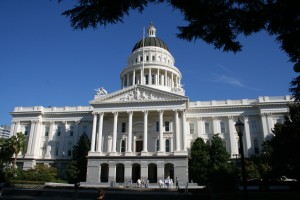More than 200 people filled a Sacramento hotel meeting room yesterday to celebrate the 25th anniversary of Health Access, the consumer health advocacy group. But it wasn't all party -- the event featured a four-hour symposium with speakers including Diana Dooley, secretary of the state Health and Human Services agency; key legislators who chair health committees; and long time health advocates.
And everyone was focused on one thing: implementation of the Affordable Care Act.
After joking that "I quake in my boots" over the amount of work that needs to be done between now and January 1, 2014, Secretary Dooley sounded a distinctly cautionary note of what to expect as the rollout of Obamacare progresses in California. "It's going to take years to make this work," she told the crowd. "There are going to be fits and starts, speed bumps that we'll have to get over."
She talked about her concerns around affordability and capacity. Then she reminded the crowd of the wait for more information from the feds. For example, the Affordable Care Act promises to fund 100 percent of those newly eligible for Medicaid. But in an acknowledgement to the "fiscal cliff" discussions in Washington, she said it's unclear if some of that money may be pulled back.
"We're not going to extend benchmark coverage beyond what is sustainable," Dooley said, "because we cannot take it back. ... I don't want to be on the hook for promising things we can't deliver." She added that she wants to build on a stable foundation and maintain California's position as the "lead car" among states implementing the ACA, but added, "I want to be honest with our partners about where the challenges are."
